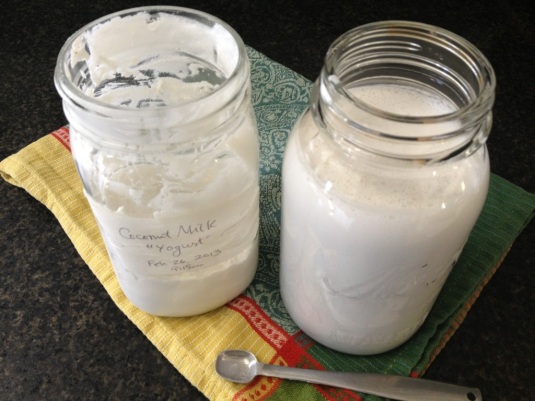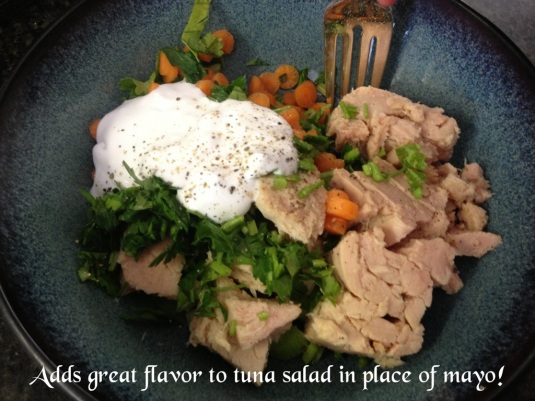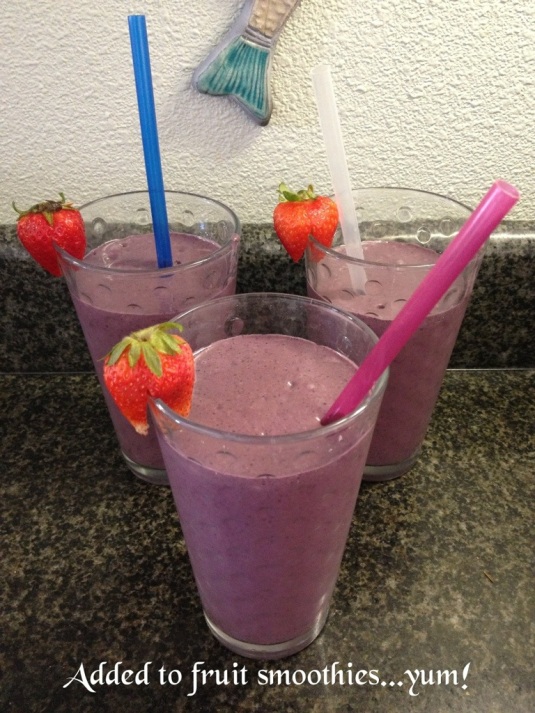Webster’s College dictionary defines ‘alchemy’ as:
1. a form of chemistry and speculative philosophy of the Middle Ages that attempted to discover an elixir of life and a method for transmuting base metals into gold.
2. any seemingly magical process of transmuting ordinary materials into something of true merit.
This next “recipe” is another simple one, and was an exciting discovery for me. It is, in a certain sense, a kind of alchemy. It starts with a simple substance–in this case, coconut milk–and through an almost magical process is transformed into something new and, in my opinion, something golden. An elixir of life. A living, breathing longevity tonic. A healing substance.
If you are beginning to notice a trend here (if two blog posts can amount to a “trend”), you may be onto something. I have a ‘thing’ for cultured foods, the real kind of cultured foods, created through natural, living elements, the wild yeasts of the air or beneficial bacteria known as “probiotics.” Sandor Ellix Katz, author of the book “Wild Fermentation,” wrote: “Moving toward a more harmonious way of life and greater resilience requires our active participation. This means finding ways to become more aware of and connected to the other forms of life that are around us and that constitute our food — plants and animals, as well as bacteria and fungi — and to the resources, such as water, fuel, materials, tools, and transportation, upon which we depend.” And, “The science and art of fermentation is, in fact, the basis of human culture: without culturing, there is no culture. Nations that still consume cultured foods, such as France with its wine and cheese, and Japan with its pickles and miso, are recognized as nations that have culture. Culture begins at the farm, not in the opera house, and binds a people to a land and its artisans.” And I would add that culture also begins at home!
So, without further ado, here is
Cultured Coconut Cream, also known as “Coconut Milk Yogurt.”
• Two cans full-fat coconut milk, unsweetened
• 1/2 to 1 tsp probiotic powder
Simply take two cans of coconut milk, preferably organic, and pour them into a clean glass quart size jar. Use about a teaspoon of your favorite probiotic powder and mix it up. *I find it easiest to actually blend the powder into the milk somehow, either by pouring everything into your blender and blending for several seconds until well mixed and all lumps are gone, or by adding a little of the coconut milk to a Magic Bullet container or equivalent and blending the powder onto this, then combining with the rest if the milk, or by using a hand blender and doing it right in your jar! Either way, you get the point: make it creamy and smooth.
Screw on a lid (I like the BPA-free white plastic lids for all fermented foods) and set it out on your counter out of direct light, or in a pantry, etc., where it can remain undisturbed for awhile. It usually takes at least 24 hours to thicken, and sometimes I leave it out for up to 48 hours and it becomes a very solid cream! Remember that the room temperature will also effect the speed at which it cultures.
When it’s to your liking, put it in the fridge or cold storage. It will firm up as it chills. Depending upon the amount of time it cultured and the strength and activity of the probiotics, it will be anywhere from a thin yogurt consistency to a full-on, solid cream almost like cream cheese! Now, when you make your next batch, just use a tablespoon or a few in place of the probiotics as your “starter”/culturing agent, and voila! You have created something alive and dynamic!
Here are some ways I like to use Cultured Coconut Cream.
• As a sub for mayo in tuna or other salads. (Just made this today for my daughter Sophia and I, and it was delicious!)
• As a dairy-free yogurt or “kefir” style drink (can be sweetened with stevia drops, honey, etc. and mixed with cinnamon, fruit, nuts, granola, etc.).
• Added to smoothies.
• Used like sour cream, for a dairy-free version.
• Use as a base for Ranch dressing, or any other dressing or dip. (Last night I used equal parts cultured coconut cream “yogurt” and plain, full-fat yogurt mixed with herbs & spices, including fresh chopped parsley, to make a delicious “Ranch” dressing–super yummy!)
Have fun and experiment :).



Mar 28, 2013 @ 04:10:34
sounds yummy. So why does it not need a constant warming temperature, I am wondering, like regular yogurt does, when you culture milk?
Apr 17, 2013 @ 00:50:37
Emily, I am not sure why it doesn’t need to be kept in a consistently warm environment to work (as with yogurt), but it does (work)! I usually keep mine out on the counter for up to 48 hours, or until it has separated slightly and does not seem so liquidy (although it will still be rather watery in consistency). Once it sets in the fridge, it will firm up.
Jan 17, 2014 @ 23:21:21
I tried this did a little different wonder if that is why it didn’t work so well. I didn’t have a quart jar. I had two pasta jars that had been previously cleaned. So I took 1/2 tsp of probiotic with 1 can of full fat tai kitchen coconut milk. Blended together as suggested and put it in a past jar. Did this twice.
What i got out is a a little thicker than the original coconut milk if blended. It was done for 48 hours and put in a storage shelf away from any direct light.
So does it have to be all in one? Or is it the probiotic I used not potent enough? Ideas? I was hoping to get to the consistancy of sour cream…But right now it is not even the consistency of yogurt.
Thanks so much for the article and the help 🙂
Jan 21, 2014 @ 17:18:23
Hello Angela :).
I apologize for my delayed reply to your questions! Here are my thoughts: It may not be warm enough for the coconut milk to fully culture simply sitting out on your counter. I actually used my dehydrator set on very low, around 100 degrees Fahrenheit, the last time I made my cultured coconut cream and it seemed to work better. (Duh, right?). Do you have a dehydrator or yogurt maker? If not, you could try putting your jars in an oven with the pilot light on, or, if your oven temperature goes as low as 120 degrees you could use it this way. On top of your fridge is another place that may be a warm incubator for the culture. Or, if you have a crock you could set it on “warm” and set your jars inside, checking every 6 hours or so.
And as far as the jars, I don’t believe that should have made a difference. As long as each jar contained a culturing medium (i.e., your probiotics) mixed well with the coconut milk, it should work.
The type and strength of the probiotics you are using are definitely considerations and may be the reason that your coconut milk did not thicken up. Did you put it into the fridge and wait at least a few hours to check it? I find that it thickens in the fridge as it cools. So another option could be to add more probiotics–maybe a teaspoon instead of 1/2 teaspoon–and see if that makes a difference as well. Some probiotic supplements are definitely more potent than others.
I’d love to hear if any of these suggestions help, so please check back! Good luck 🙂